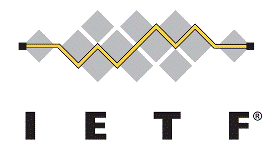Contracts
The IETF Administrative Support Activity (IASA) is responsible for ensuring that the IETF's administrative needs are met but the IETF does not expect that the IASA will take on the bulk of this work directly; rather, the IETF expects the IASA to contract this work from others and to manage these contractual relationships to achieve efficiency, transparency, and cost effectiveness.
As detailed in RFC 4071, The IETF Administrative Director (IAD) is responsible for negotiating and maintaining contracts or equivalent instruments with outside organizations, and for providing any coordination necessary to make sure that the IETF administrative support functions are covered properly. All functions, whether contracted to outside organizations or performed internally within the IASA, must be clearly specified and documented with well-defined deliverables, service level agreements, and transparent accounting for the cost of such functions.
Service |
Contract |
| IANA
The Internet Assigned Numbers Authority (IANA) administers many parameters of IETF protocols. The Internet Corporation for Assigned
Names and Numbers (ICANN) provides these services to the Internet community through an arrangement with Public Technical Identifiers (PTI). |
|
| IETF Meeting Network Services
The IETF outsources the network communications infrastructure for its thrice annual face-to-face meetings. More information on requirements can be found here: http://iaoc.org/ietf-network-requirements.html |
|
IETF Meeting Remote Participation Services
The IETF outsources remote participation services, including the production of session videos, for its thrice annual face-to-face meetings. IETF meeting sessions can be found on the IETF YouTube Channel grouped by meeting: https://www.youtube.com/user/ietf/playlists
Search for individual sessions: IETFnn-WGname-YYYYMMDD-HHMM |
|
RFC Editor
The RFC Editor function has three components: (i) RFC Series Editor (RSE); (ii) the RFC Production Center (RPC); and (iii) the RFC Publisher (Publisher). The RPC is responsible for the final editorial review of the documents, as well as the maintenance of the online repository and index of those documents. The RPC and Publisher are currently under contract with Association Management Solutions (AMS). |
|
| IETF Secretariat
The IETF Secretariat provides general administrative and meeting planning support to IETF leadership and community at large. The Secretariat is currently housed at Association Management Solutions (AMS). |
|
The IASA Guidelines for Contracted Services
In all cases, the IASA needs to establish normal business relations with entities providing services to support the IETF administrative function. While it is desirable that these relationships have the maximum amount of transparency to the IETF community that can be reasonably obtained, this should not in any way detract from the "normal business relationship" expectation. This implies that:
- The IASA defines the service requirements (statement of work, service level agreement)
- The IASA and the service provider enter into a formal agreement based on those service requirements
- The IASA judges whether it believes the service as performed is meeting stated requirements
- Service requirements may need to be revisited and adjusted in the normal course of events throughout the life of the agreement with a given service provider
- Any change of service requirements will be considered in the light of expected impact on costs and deliver-ability
- Agreements will be negotiated to reach a "fair price" for the services rendered within industry standard norms. This means that while the IASA will work to manage expenses as reasonably as possible, the IASA has no issue with the service provider making some reasonable industry level of profit, as long as the previous conditions of costing are met.
In the above, "IASA" is used to mean the IAD and/or IAOC as appropriate as these work to ensure the IETF’s administrative support needs are appropriately met. The IASA is seeking:
- Ongoing discussion at a high level to determine whether or not a service provider understands and can deliver the required service. Suggestions for adjusting the described/proscribed service are appropriate, but it is up to the IASA to determine final selection of work items
- Ongoing discussion of options for how best to implement the set tasks, with a discussion of trade-offs (cost, resources, delivery time-frame, etc.) in advance of implementation or changes.
- Service providers that bring a high level of domain expertise and "value add" to the activity
- Service providers that have more core competency to perform the set tasks than exists within the IETF organization itself (i.e., not participants, but the formal organization cluster)
The IASA is NOT seeking:
- A managed out source activity. That is, the IASA is not looking to provide all the executive direction in such a manner that the service provider is merely acting as the organizational home of the work and shipping the bills on to ISOC.
- Write-through service charging: "it doesn’t matter how much it costs, ISOC is paying the bill".
- Service offerings bounded by what the IASA is willing to pay. The industry standard should define the needed level of service offering, and the service provider should be setting a fair price and working out (internally) how best to meet the service level requirements.


